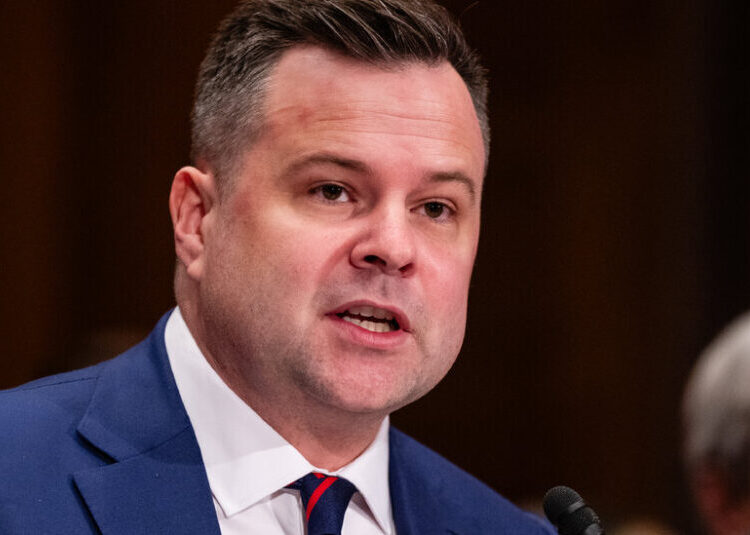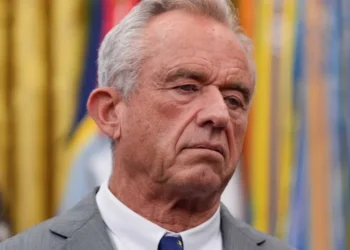Regarding the Nov. 23 front-page article “Worries on drug boat strikes got sidestepped”:
Death by executive decision, without the accountability of due process, is not acceptable. There are proven alternatives to the Trump administration’s approach.
As a former ambassador to Colombia and Afghanistan, I presided over our efforts against the world’s largest cocaine producer and opium producer. In both arenas, the drug trade abetted a cruel and lethal terrorist menace, which is a connection that was well understood, well documented and direct.
In the Caribbean, Joint Interagency Task Force South ran effective counter-boat operations using fixed-wing aircraft to spot go-fast boats, helicopters to shoot out their engines and take photos of contraband, and surface vessels to take in the boat and crew. Special arrangements with Colombia and other cooperating governments allowed the drug runners to be dropped off for prosecution without delaying our boats’ ability to return to the hunt. But the operation’s success was limited by a chronic lack of resources.
In the Pacific, even larger drug shipments were concealed in fishing boats. The guilty boat would join a fleet of legitimate vessels and browse the seas for fish, often going far south before approaching Mexican or Central American shores. We were less successful against this strategy because of the larger sea area to cover and a critical lack of resources. This is one reason the Pacific route has grown in recent decades. But with increased intelligence and operational resources and the continued cooperation of Mexico, there is no reason we can’t be as successful there as we are in blocking seaborne drug trafficking to California shores.
The Post recently characterized me as “adamant” in the fight against illicit drugs. I understand the Trump administration’s desire for a visible, threatening deterrent. But such deterrence can be achieved by increased capabilities within the scope of due process and diplomatic cooperation, without resorting to cruel, unaccountable and illegal methods.
William Wood, Washington
Underscore this obligation
Regarding the Nov. 21 front-page article “Trump: Democrats in video ‘traitors’”:
President Donald Trump called the members of Congress who encouraged military personnel to disobey unlawful orders “traitors.”
How soon we forget! The order to slaughter unarmed civilians at My Lai in 1968, for example, should have been disobeyed. It was patently unlawful, however troublesome it was for those involved to discern and act on that at the time.
We must underscore, not undermine, the obligation of those to whom we entrust the exercise of deadly force to use that force only in pursuit of lawful objectives.
I write as a former Marine officer and judge advocate, and it was my job at the Marine Corps Headquarters in 1970 to help investigate the few but shameful incidents of possible Marine crimes against Vietnamese civilians.
We demand our military behave honorably and lawfully. The commander in chief should, too. And how appropriate to remind the men and women who wear the uniform that authority is not synonymous with legality.
David Skaggs, Longmont, Colorado
The writer, a Democrat, represented Colorado in the U.S. House of Representatives from 1987 to 1999.
Military must obey the law
Regarding the Nov. 22 news article “What the military’s oath says about following unlawful orders”:
A plaque at the United States Military Academy at West Point states that “should orders and the law ever conflict, our officers must obey the law.” Under the Uniform Code of Military Justice, officers can be court-martialed for obeying an unlawful order. But they also face court-martial for disobeying a lawful one. So, one might empathize with those officers who follow orders whose legality they question. Or who resign rather than incur the legal hazards and expenses that would follow disobedience, not to mention disapprobation from within and outside the military. Disobeying or countermanding an order begs for moral courage rather than the physical courage faced in combat. It is unfortunate that our current commander in chief and defense secretary challenge our military to make such decisions.
H. Ric Blacksten, Falls Church
Impact of Medicaid funding cuts
The devastating effects of the federal provision to cut funding for providers of basic reproductive health care services, as reported in the Nov. 12 online news article “Planned Parenthood closes 20 clinics after Medicaid cuts, warns of grim future,” go even further for Ohio. Federal funding cuts have already resulted in the closure of Planned Parenthood clinics in Cleveland, Springfield and Hamilton — and Columbus by the end of November — leaving thousands of patients with fewer options for care. The funding cuts have also resulted in layoffs of Planned Parenthood team members in an effort to cut the budget to keep the state’s remaining clinics open.
Forty-three percent of patients served by Planned Parenthood of Greater Ohio last year were on Medicaid; with the loss of Medicaid funding, that means about 22,000 Ohioans can’t access basic reproductive health care services.
We are challenging the Ohio Department of Medicaid’s decision to terminate us as a Medicaid provider in the state, which would have long-term consequences for our ability to accept Medicaid in the future. While lawmakers continue to play politics with Americans’ health care, we won’t let them deter us from our mission to provide affordable, high-quality compassionate care.
Erica Wilson-Domer, Canton, Ohio
The writer is the CEO of Planned Parenthood of Greater Ohio.
The post Caribbean boat strikes were unacceptable. Here are legal alternatives. appeared first on Washington Post.




